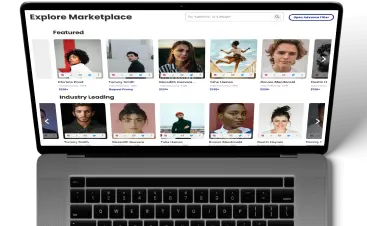Legal Considerations in Influencer Marketing: What Brands Need to Know in 2023
Influencer marketing has become a popular way for brands to reach their target audience and increase their sales. However, with the rise of influencer marketing, there are also legal considerations that brands need to be aware of. In this blog post, we will discuss the legal issues that brands need to know in 2023 when it comes to influencer marketing.
Misleading and Deceptive Advertising
One of the biggest legal issues in influencer marketing is misleading and deceptive advertising. The Federal Trade Commission (FTC) requires influencers to disclose any material connection they have with a brand when promoting its products or services. This includes disclosing if they received compensation or free products from the brand.
Brands must ensure that their influencers are disclosing their relationship with the brand properly. Failure to do so can result in fines and damage to the brand’s reputation.
These disclosures typically come in a few different forms. Instagram allows users to link “paid partnership” banners on their posts to disclose that they are running an ad. On other platforms, some influencers may include the hashtag #ad in their posts to help disclose that they are running an ad. Either way, make sure your influencers disclose the paid ad on their social.
Influencer Agreements
Another legal consideration for brands is influencer agreements. Brands should have a written agreement with their influencers that outlines the terms of their relationship, including compensation, content creation guidelines, and disclosure requirements. Having an agreement in place can help protect both parties in case of disputes or misunderstandings.
A popular rule of thumb is to make sure you include all of the steps, deadlines, and deliverables in your contract, so that all parties involved know exactly what is expected of them and when it is expected. Otherwise, you risk running into gray areas during your campaigns.
Intellectual Property
Intellectual property is another important legal consideration for brands in influencer marketing. Brands must ensure that they have permission to use any copyrighted material created by an influencer, such as photos or videos.
Brands should also consider trademark infringement when working with influencers. If an influencer uses a trademarked term without permission, it could result in legal action against both the influencer and the brand.
Privacy Concerns
Privacy concerns are becoming increasingly important in influencer marketing. Influencers often share personal information, such as their location or personal experiences, which can raise privacy concerns for both themselves and their followers.
Brands should work closely with their influencers to ensure that they are not sharing sensitive information without proper consent. Additionally, brands should make sure that they are complying with data protection laws when collecting and using personal data from influencers and followers.
In your creative briefs, be very clear about what you want influencers to disclose, and how you want them to disclose it.
Conclusion
In conclusion, there are several legal considerations that brands need to be aware of when it comes to influencer marketing in 2023. Misleading and deceptive advertising, disclosure requirements, influencer agreements, intellectual property rights, and privacy concerns all require careful attention from both brands and influencers alike.
If your brand wants to run an influencer marketing with the industry’s #1 influener marketing experts, contact Glewee today!
*This post is not legal advice. If you have any legal questions about influencer marketing, we suggest you ask a licensed attorney.





